Fujitsu bosses paid £26m during Horizon contract
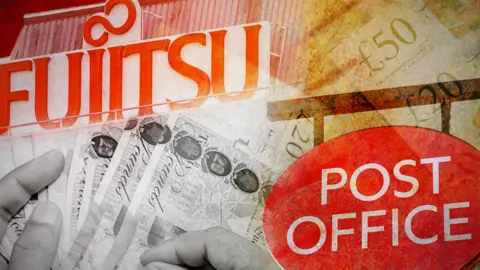 BBC
BBCFujitsu UK paid its top executives more than £26m in the 25 years since the controversial Horizon contract with the Post Office started.
It also paid more than £11m to former directors for loss of office during that time, BBC analysis of accounts show.
While Duncan Tait was UK boss, the highest-paid director earned £2.5m.
Fujitsu has apologised to sub-postmasters, and said it will contribute to compensation.
At the heart of the Post Office scandal was a flawed computer system, Horizon, which generated unexplained errors from its inception to the present day.
And for more than a decade, these were unfairly blamed on sub-postmasters, of whom more than 900 were prosecuted.
The system was built by a British computer company called ICL, which was renamed after its Japanese owners Fujitsu in 2002.
Fujitsu's accounts don't list the salaries of its UK bosses. But its two European subsidiaries, Fujitsu Services Ltd (FSL) and its European holding company Fujitsu Services Holdings Ltd (FSHL) do report the "total emoluments" - jargon for pay packets including base salary, bonuses and long-term incentives - of their highest-paid director.
They do not name individuals but in most cases the chief executive is the highest-paid director.
They show how directors were paid millions, while sub-postmasters were chased through the courts for tens of thousands of pounds they didn't owe, based on false data from Fujitsu's flawed computer system.
"I just think it's absolutely disgusting," said Alison Hall, who used to run a Post Office in Liversedge near Leeds, and whose conviction for false accounting was overturned in 2021. "I don't know how they sleep at night. How they can pay themselves when they knew all this time there were bugs in the Horizon system and it was their fault."
Kevan Jones, a Labour MP who has campaigned on behalf of Sub-postmasters and sits on the Horizon Compensation Advisory Board said: "They were quite clearly being paid millions of pounds for failure but that failure had consequences. It ended up with people's lives being ruined but also individuals being sent to prison. And that is something which Fujitsu need to explain."
Research from the House of Commons Treasury Select Committee found from 2019, Fujitsu held £3.4bn of contracts with the Treasury, HMRC, the Bank of England, and the Financial Conduct Authority. Fujitsu has said it will no longer bid for public sector contracts - unless requested to - while the statutory inquiry into the scandal led by Sir Wyn Williams is ongoing.
Keith Todd
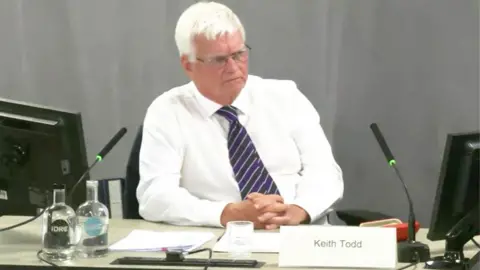 Post Office Horizon Inquiry
Post Office Horizon InquiryKeith Todd was in charge at Fujitsu during the troubled genesis of ICL's IT system for the Benefits Agency and Post Office Counters in the late 1990s.
The Benefits Agency pulled out, ICL lost £180m, and the Horizon system went live with just Post Office in 1999.
Accounts for ICL - the company which later became FSHL - report its highest-paid director's total pay. Given that Mr Todd was chief executive, it's very likely it was him.
The highest-paid director for the year ending March 2000 - Mr Todd's last year in office - received £412,000.
But Mr Todd also held options to buy 1.75 million shares which could have been worth millions of pounds if ICL's planned launch on the stock market went ahead.
In 2022, Mr Todd gave evidence to the Horizon Inquiry. It heard how in 1999 there was a possibility the Post Office would cancel the troubled project altogether. That January Mr Todd warned the UK government that the flotation of ICL, and possibly hundreds of jobs at the company, were at risk if the project was cancelled.
Horizon survived, but the float was cancelled anyway because of difficult market conditions, and Mr Todd resigned. The following year Fujitsu Services Ltd paid £4.4m as compensation for loss of office to an unnamed director or directors - very likely most, if not all, would have gone to Mr Todd.
When senior directors leave businesses they often receive payments in recognition of their service, and to make up for long-term incentive payments such as share options that haven't paid out yet.
Richard Christou
Keith Todd was succeeded as UK chief executive by Richard Christou, a Preston-born lawyer-turned-executive who has been credited with saving ICL. He described winning the Post Office contract for ICL as "his proudest moment".
"They still have the contract, 25 years later, and it's been their most profitable," he told the IT Archives website in 2019.
In the accounts he is listed as executive chairman of FSHL from 2000 to 2004, and again in 2009. During those years, the highest-paid director earned a total of £3.1m.
Mr Christou is expected to appear in front of the Horizon Inquiry later this year.
David Courtley
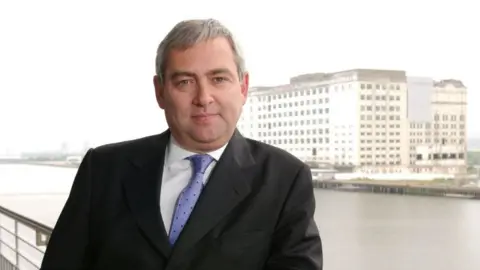 Shutterstock
ShutterstockHe was succeeded by David Courtley, whose title was chief executive of Fujitsu's European services business from 2004 to 2008. In those years, the highest-paid director, likely but not definitely Mr Courtley, received as much as £2.36m a year, reaching a total of £9.15m.
In 2009 FSHL paid £1.59m in compensation for loss of office, presumably to Mr Courtley.
Richard Christou briefly resumed the top job while a replacement was found.
David Courtley left Fujitsu to lead a company called Phoenix IT. Within a few months, this firm was embroiled in an accounting scandal, and he left 14 months later - though the company said his departure was not linked to the accounting issues.
Mr Courtley now runs a small IT consultancy called Mozaic.
Roger Gilbert
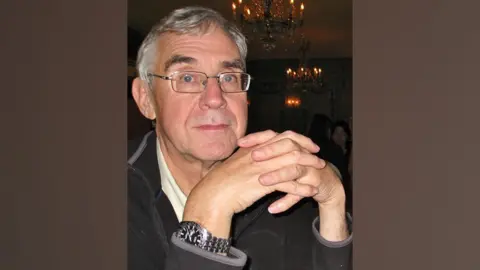 Roger Gilbert
Roger GilbertRoger Gilbert took over in 2009, the year that the first major media stories about the Post Office scandal began to emerge, including an article in Computer Weekly.
In his first year, the highest-paid director of FSHL received £917,000, and £725,000 the following year, though Mr Gilbert told the BBC he was not the highest-paid director, and did not receive anything like this amount.
He moved to the role of chairman in 2011, and retired the following year.
"I am shocked by the Post Office's actions in prosecuting so many innocent people," he told the BBC. "It is right that there is a public inquiry to investigate what happened and I am looking forward to their report which I am confident will provide much more insight than my very limited visibility of Horizon operations could provide."
He said the Horizon scandal was only discussed once at board level while he was in charge - and the Horizon team led him to believe the Post Office was acting "competently and honestly."
Duncan Tait
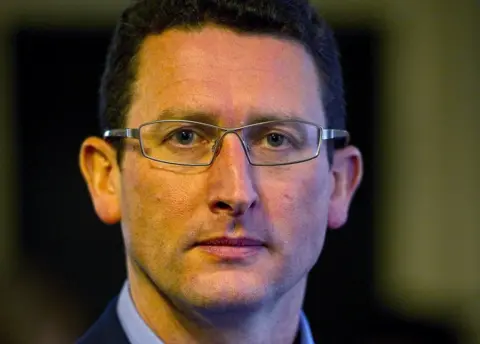 Shutterstock
ShutterstockDuncan Tait was appointed Fujitsu's UK & Ireland chief executive in 2011, and in 2014 he was promoted to become Fujitsu's chief executive of Europe, Middle East, India and Africa. The following year he was promoted to the board of Fujitsu's main company in Japan.
The promotions coincided with a big increase in pay for the highest-paid director of FSHL, rising from £1.46m in 2015 to £1.68m in 2018, and £2.45m in 2019.
Mr Tait's time at the top of the firm covered the period when the Horizon affair developed from a few media articles and documentaries into a national scandal.
Internal legal advice warned the Post Office that a Fujitsu employee was giving false evidence in court, and the sub-postmasters launched their legal action.
Mr Tait was revealed as the Fujitsu source who told Post Office chief executive Paula Vennells that Horizon was "like Fort Knox" - a claim she repeated in a letter to Parliament in 2020. Mr Tait later claimed the remark referred to its ability to withstand cyber-attacks.
He stepped down in 2019, the same year the sub-postmasters won their case at the High Court. Mr Tait has said the events are unrelated.
The year after he departed, FSHL paid £2.61m to an unnamed director in compensation for loss of office. It's presumed that this was for Mr Tait.
The following year he took a new position as group chief executive of the car dealer Inchcape, where he was paid more than £4m in 2022. He is also due to give evidence to the next phase of the Horizon Inquiry.
Mr Tait said: "I am appalled by the harsh treatment of the sub-postmasters and postmistresses and want to do all I can to support the inquiry. This has been a terrible miscarriage of justice and like others at Fujitsu, I am sorry for the damage that has been done to the sub-postmasters and postmistresses' lives and any role that Fujitsu played in that."
Paul Patterson
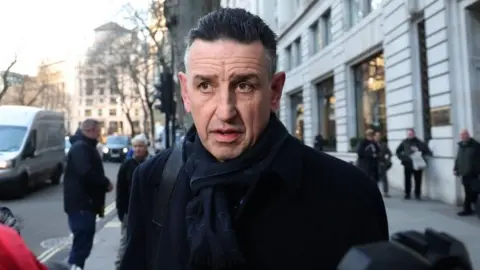 EPA
EPAHe was succeeded by the current chief executive, Paul Patterson, who has been in post during the Horizon Inquiry. He gave evidence last month, and is due to do so again later this year.
He admitted to MPs on the Business Select Committee this year that there had been "bugs, errors and defects" with Horizon from the start, and apologised for his firm's role in the scandal.
He now faces the prospect that Fujitsu may be asked to contribute to the compensation fund for the victims, something he has said the firm has a "moral obligation" to do.
The highest-paid director of FSHL, presumably Mr Patterson, has seen their pay fall from £890,000 in 2019 to £408,000 in 2023.
However, the highest-paid director of FSL was paid £1.3m in 2022. This is likely to be the head of UK and Ireland Anwen Owen, who was the only person who was director of FSL but not FSHL that year.
Richard Christou, David Courtley, Anwen Owen, Paul Patterson and Keith Todd declined to comment for this article.
Fujitsu declined to comment on former and current executives' pay, but sent the following statement:
"The Fujitsu Group regards this matter with the utmost seriousness and offers its deepest apologies to the sub-postmasters and their families.
"Based on the findings of the Inquiry, we will also be working with the UK government on the appropriate actions, including contribution to compensation. The Fujitsu Group hopes for a swift resolution that ensures a just outcome for the victims."

Have you been affected by the issues raised in this story? Share your experiences by emailing [email protected].
Please include a contact number if you are willing to speak to a BBC journalist. You can also get in touch in the following ways:
- WhatsApp: +44 7756 165803
- Tweet: @BBC_HaveYourSay
- Upload pictures or video
- Please read our terms & conditions and privacy policy
If you are reading this page and can't see the form you will need to visit the mobile version of the BBC website to submit your question or comment or you can email us at [email protected]. Please include your name, age and location with any submission.
